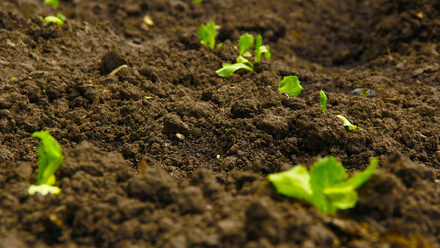Plant Microbe Interactions Series - Part 2
Keynotes from Katherine Denby and Sharon Zytynska
Plant microbe series
Join us for one or both parts of this two part webinar series on Plant-Microbe Interactions.
Brief overview of programme and event
Plants interact in a variety of ways with microorganisms, whether through symbiotic associations leading to environmentally specific fitness benefits or biotic insults orchestrated by pathogens. Plants have evolved a myriad of complex and highly coordinated mechanisms to deal with such interactions, which will be the focal point of the 2020 Plant-Microbe Interactions meeting.
This event will take a comprehensive view of the multi-disciplinary field of plant-microbe interactions, to demonstrate how it offers solutions to fundamental questions in biology and provides potential applications in agriculture, biotechnology, and conservation.
Who will the event be of interest to?
This two part series will be of interest to microbiologists and plant-scientists addressing questions relating to the plant microbiome, co-evolution, or the improvement of plant traits through microbial-mediated means, in either an academic or industrial setting.
Dates
Part 1 - 7 October 2020, 15:00-16:45
Part 2 - 14 October 2020, 15:00-16:45
Programme - Part 2, 14 October
15:00-15:05 – Introduction, Jake Bell - Royal Holloway, University of London
15:05-15:40 – A systems approach to disease resistance against necrotrophic fungal pathogens - Katherine Denby, University of York
15:40-16:15 – Microbe-mediated plant growth promotion and pest suppression in a cereal crop system - Sharon Zytynska, University of Liverpool
16:15-16:45 – Networking
Registration
This booking is for Part 2 on 14 October only, please book Part 1 taking place on 7 October separately.
Speaker Abstracts
Katherine Denby, University of York - A systems approach to disease resistance against necrotrophic fungal pathogens
Plant responses to biotic stress involve large-scale transcriptional reprogramming. We elucidated gene regulatory networks underlying these transcriptional responses to pathogen infection using a combination of experimental and computational/mathematical tools. We generated high-resolution time series expression data from lettuce leaves following infection with two fungal pathogens, Botrytis cinerea and Sclerotinia sclerotiorum. We applied a time series-based network analysis gene discovery strategy to predict lettuce genes conferring disease resistance against these fungal pathogens and combined this with quantitative genetics, and analysis of natural variation in defence transcriptomes, to speed up the discovery of genes underlying disease resistance traits. Our dual RNAseq data enabled us to capture temporal transcriptome changes in both host and pathogen to probe the molecular basis of plant-pathogen interaction and also predict key regulators of virulence in the pathogens.
Sharon Zytynska, University of Liverpool - Microbe-mediated plant growth promotion and pest suppression in a cereal crop system
Climate change is altering the dynamics of crop pests and diseases resulting in reduced crop yields. Using beneficial soil bacterial to increase crop health is a quickly developing area in sustainable agriculture, but it is unknown if climate change or interactions with other species could alter their effect. I will present results showing that the rhizobacterium Acidovorax radicis N35 can increase barley (Hordeum vulgare) plant growth while simultaneously suppressing aphid (Sitobion avenae) populations. The results further showed that the strength of effect was greatest in a high-stress elevated O3 environment, but reduced effects under elevated CO2. Earthworms promoted both plant and insect growth, but inoculation with A. radicis N35 alleviated some of the earthworm-mediated increase in pest abundance, particularly in the ambient environment. The consistency of these beneficial effects highlights the potential of exploiting local species interactions for predicting and mitigating climate change effects in managed systems.


